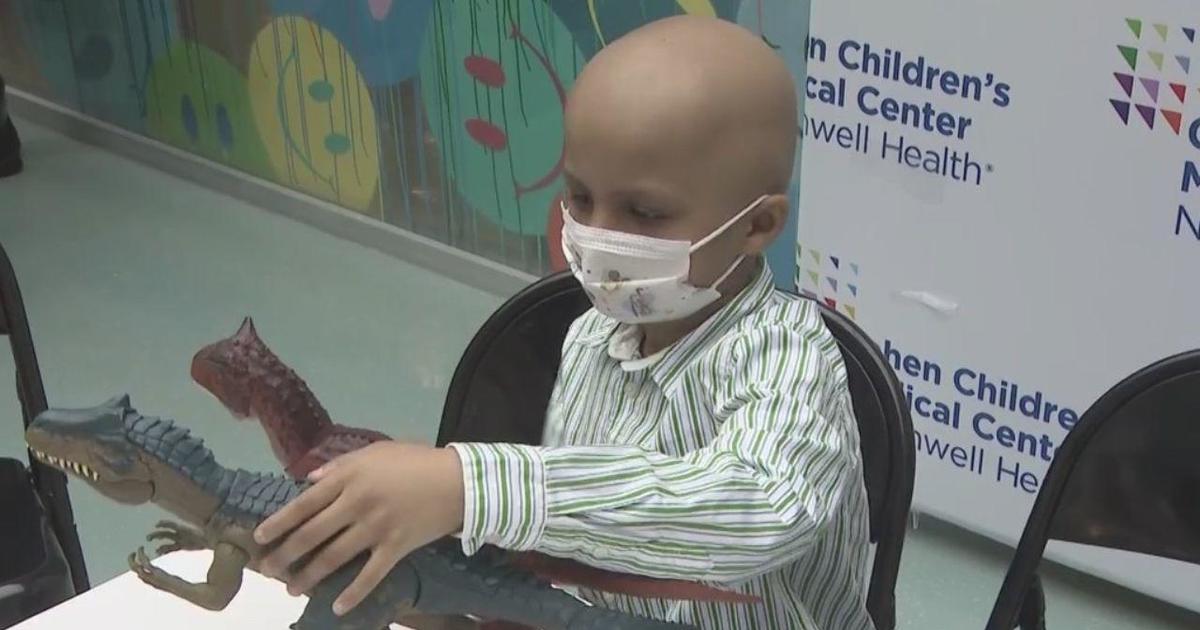Experts: MERS Virus Still Poses Low Risk To General Public
NEW YORK (CBSNewYork) -- A third case of the Middle East Respiratory Syndrome Coronavirus has been reported, this time in Illinois.
As CSB 2's Dr. Max Gomez reported, what is concerning about this latest case is that it may have spread by casual contact.
This is the first known case of human-to-human spread of the MERS virus to someone who had come from the Middle East. The other two cases in the U.S. had been health care workers in Saudi Arabia.
And while the disease was apparently transmitted casually, it may not be as scary as it sounds.
An Indiana man became the first case of MERS reported in the U.S., and was hospitalized April 28 after returning from Saudi Arabia. The Centers for Disease Control and Prevention said the Illinois man met with the Indiana MERS patient in business dealings on two occasions before being identified himself as having the virus, CBS Chicago reported.
Health officials have been monitoring the health of the Illinois resident every day since May 3. The Illinois resident initially tested negative for MERS on May 5 but test results reported on Friday showed an apparent past MERS infection, CBS Chicago reported this past weekend.
An Indiana man became the first case of MERS reported in the U.S. and was hospitalized on April 28 after returning from a trip to Saudi Arabia. The CDC says the Illinois man met with the Indiana MERS patient on two occasions before the patient was identified as having the virus. That patient has since been released from the hospital.
Health officials have been monitoring the health of the Illinois resident every day since May 3. The Illinois resident initially tested negative for MERS on May 5 but test results reported on May 16 showed an apparent past MERS infection.
The man did not require medical care is reported as feeling well, according to the CDC. Officials have not specified where in Illinois the man is from.
The CDC said the virus probably spread during a meeting that involved no more contact than a handshake during two business meetings, Gomez reported. But health experts still believe the risk to the general public remains low.
"I don't think it changes much," said Dr. Robert Posada of Mount Sinai Hospital. "It remains a fact that the virus has not spread widely among communities."
Posada, an infectious disease specialist, said that even apparently casual contact such as a handshake could still be an effective way to transmit a virus.
For example, if the MERS patient had coughed or sneezed into his own hands and shaken hands with someone later, and then that second person had rubbed his eyes or nose, all that together could transmit a respiratory virus such as MERS.
What is more medically revealing is the fact that this third case was not sick and had no symptoms. He was tested positive by screening procedures that health officials have undertaken, trying to track all possible contacts of the two U.S. MERS patients.
"The implication of that – it's a little bit early to know for sure – but the implication of that is that perhaps the virus is not as lethal as we initially thought; that there's more of a spectrum of disease – that some people get sick and have no symptoms, or some people get infected and have no symptoms – but might get minor symptoms," Posada said.
The CDC has posted warnings about the virus in U.S. airports, but does not plan to take any further precautions at this time.
Health experts do say that anyone should see a doctor if he or she has traveled to the Middle East, or has had close contact with someone there recently, and has developed flu-like symptoms – fever, cough, chills, body aches or sore throat.
Anyone affected should also tell the doctor about his or her travel history.
Check Out These Other Stories From CBSNewYork.com:



